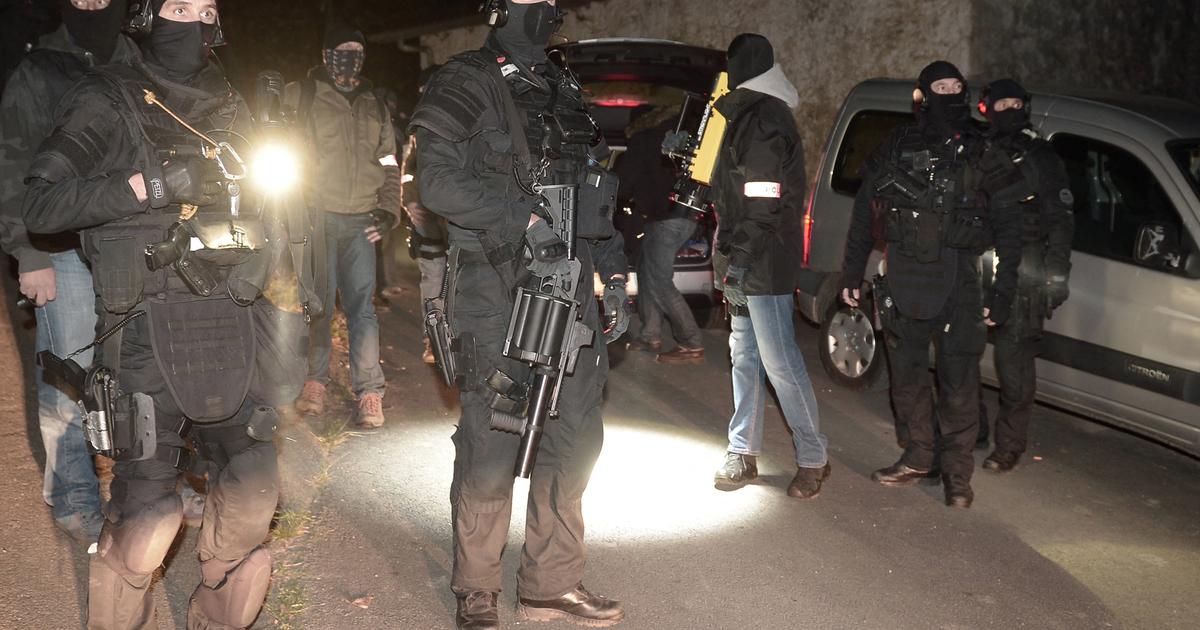When given the choice between an austere office chair and a white leather sofa that seems quite comfortable, Åsne Seierstad (Oslo, 52 years old) does not hesitate.
She has been awake for 40 hours.
She has been relentlessly proofreading her latest book, on the first year of Taliban rule in Afghanistan, and she has flown from Oslo to Barcelona to give a talk,
Rebuilding After the Tragedy.
Seierstad sits on the sofa under a painting by Tàpies that he has not been able to appreciate and responds, agile despite exhaustion, in the main hall of the Palau Macaya, a modernist jewel in a city that he has not set foot in since he presented his novel
The Kabul Bookseller
(2002) and from which it has been somewhat disconnected.
He confesses, with some modesty, that he was not very aware of the attacks on La Rambla, which left 16 fatalities in 2017. But he senses that the young jihadists of 17-A are corroded by the same "frustration" as a terrorist of right-wing extremist you know all too well: Anders Breivik, the neo-Nazi who on July 22, 2011, blew up a bomb outside the Norwegian prime minister's office in Oslo, then hit the forested island of Utoya, where he killed 69 boys, the majority members of the ruling Labor Party.
In
One of Ours
(Peninsula, 2022, translated by Laura Lecuona González; Edicions 62 in Catalan, 2022, translated by Mireia Alegre and Imma Estany Morros), the journalist and writer explores Breivik's personality and discovers that, under the mask from an implacable extremist who pretended to be a beacon for the extreme right in Europe, hides a fragile personality, a misplaced boy, who feels like a victim and screams for attention.
The deep "frustration" of some individuals, explains Seierstad in the interview, is the seed of extremism and the intimate engine of many terrorist attacks.
Anders Behring Breivik, during the trial in which he was convicted of killing 77 people. FRANK AUGSTEIN (AP)
Ask.
The massacre committed by Anders Breivik highlighted the consequences of white supremacy.
Do you think it is a booming movement?
Response.
I am not an expert, but it is true that we see more individual attackers and it is an issue that Europe must deal with.
Also the United States, which is experiencing attacks by the extreme right against Mexicans or against women that are sometimes difficult to define.
There are many frustrated people.
People who think they deserve more than they have, and who blame others for everything that happens to them.
P.
What do you think is the remedy against this personal shipwreck that, as you say, can lead to radicalization?
A.
I have a very boring answer, but I think it is the only valid one.
We must try to build functional, inclusive societies, where children have outlets... For example, free sports and activities.
It is not worth saying that, had it not been Breivik, there would have been 50 more willing people, that is not true.
P.
Once tried and convicted, what influence does Breivik have on the extreme right movements?
R.
Breivik concentrated his greatest power when we knew nothing about him, when we only knew his photos, in which he appeared armed, in uniform, and seemed taller than he really is.
But when you dissect him you see that there is a lot of sadness, that he is a little boy screaming: "Look at me, look at me!"
He is not a charismatic person, he is not a leader;
he's not good with words either.
His only achievement is that he holds the record for being the solo terrorist who has killed the most people.
Few can do what he did, most terrorists fail.
Q.
What does Breivik have in common with, say, jihadist terrorists?
Does the same hatred move them?
R.
They share the hate, yes, but the hate itself is not enough.
All of them need an ideology to justify themselves, they need to say that they are doing it for a great cause.
If you study the jihadists, you see that many also have psychological problems.
But terrorism is always a means to achieve the goal, fame or whatever.
And religion is often just a pretext.
P.
In the case of Breivik, it seems that you have found some answers in his biography and in the study of his personality.
A.
Yes, it is a special case.
The more I investigated, the more it seemed to me that, in him, the personal reasons were very strong.
Breivik never fit in anywhere.
The young socialists [on the island of Utoya] were the enemy of the day, just a group I could hate.
But his victims could have been others.
Q.
Do you think that Breivik did not enjoy himself while committing the massacre.
R.
No, I think it's a myth.
At first, many people said that she was smiling and singing while she was shooting, and that is the story that remained.
But later, when you interview the survivors one by one, no one can tell you that she had seen him smile, only that they had heard that someone had seen him.
Thousands of people pay tribute with roses to those killed in the massacre of Oslo and the island of Utoya, in front of the City Hall of the Norwegian capital.
Photo by Emilio Morenatti (AP).
EMILIO MORENATTI (AP)
Q.
Do you know if Breivik has read your book?
R.
I do not know, but I have received several letters from him.
When he was in prison, I wanted to interview him for the book.
He replied that maybe yes, but he made it a condition to write it together, or at least have his part in the text.
I told him no.
While he was writing he was thinking: he has to read it, he has to know the victims he killed.
He was flattered that I wrote about him, deep down he thought I was a Nazi too or that we had some connection...
Q.
Has it cost you to get rid of your presence?
R.
After the publication of the book, he continued to write me letters, but I did not want to answer him.
I was interested in him while I was writing, but not now, he is no longer a part of my life.
Instead, I remain in contact with the families and will carry the victims for the rest of my days.
I don't know in Spain, but in Norway we are not very good with the duel.
And with these parents I learned not to be afraid of grief.
P.
Explain that, on the day of the attack, Norway was not up to the task.
R.
Yes, the country failed massively.
We failed.
The police fell asleep.
But afterwards, we were able to react.
The trial was a lesson in transparency, the ideology was analyzed, the way Breivik's brain worked... It was almost a university course for all citizens.
Q.
How has your country changed in this decade?
R.
Well, we have this wound and we have to accept it.
But we haven't fundamentally changed.
Norway is one of the countries with the highest levels of trust in the world: you trust your neighbor, your teacher, the police... After the attacks it dropped a little, but now it has recovered.
Q.
Didn't the massacre affect the difficult balance between security and freedom?
A.
Actually, no.
9/11 changed the world: Afghanistan, Iraq, airport checkpoints... It all started there.
But not here.
The only visible sign in Norway is that there is more security in government buildings.
Subscribe to continue reading
read without limits
Keep reading
I'm already a subscriber

/cloudfront-eu-central-1.images.arcpublishing.com/prisa/JR26CH7QAZELLBICUZO2437S64.JPG)






